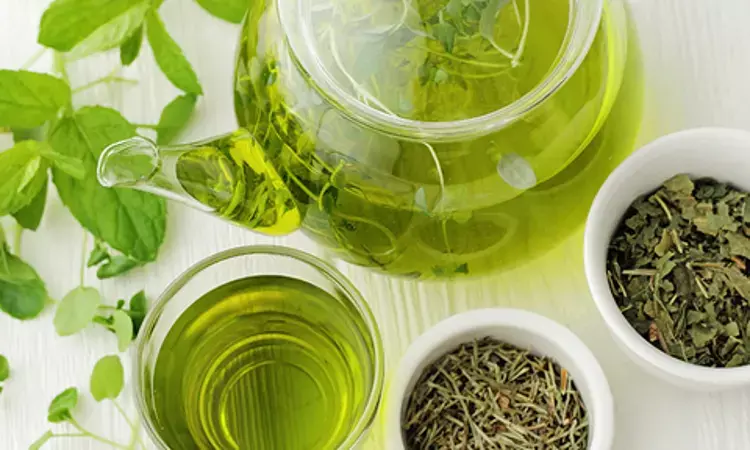- Home
- Medical news & Guidelines
- Anesthesiology
- Cardiology and CTVS
- Critical Care
- Dentistry
- Dermatology
- Diabetes and Endocrinology
- ENT
- Gastroenterology
- Medicine
- Nephrology
- Neurology
- Obstretics-Gynaecology
- Oncology
- Ophthalmology
- Orthopaedics
- Pediatrics-Neonatology
- Psychiatry
- Pulmonology
- Radiology
- Surgery
- Urology
- Laboratory Medicine
- Diet
- Nursing
- Paramedical
- Physiotherapy
- Health news
- Fact Check
- Bone Health Fact Check
- Brain Health Fact Check
- Cancer Related Fact Check
- Child Care Fact Check
- Dental and oral health fact check
- Diabetes and metabolic health fact check
- Diet and Nutrition Fact Check
- Eye and ENT Care Fact Check
- Fitness fact check
- Gut health fact check
- Heart health fact check
- Kidney health fact check
- Medical education fact check
- Men's health fact check
- Respiratory fact check
- Skin and hair care fact check
- Vaccine and Immunization fact check
- Women's health fact check
- AYUSH
- State News
- Andaman and Nicobar Islands
- Andhra Pradesh
- Arunachal Pradesh
- Assam
- Bihar
- Chandigarh
- Chattisgarh
- Dadra and Nagar Haveli
- Daman and Diu
- Delhi
- Goa
- Gujarat
- Haryana
- Himachal Pradesh
- Jammu & Kashmir
- Jharkhand
- Karnataka
- Kerala
- Ladakh
- Lakshadweep
- Madhya Pradesh
- Maharashtra
- Manipur
- Meghalaya
- Mizoram
- Nagaland
- Odisha
- Puducherry
- Punjab
- Rajasthan
- Sikkim
- Tamil Nadu
- Telangana
- Tripura
- Uttar Pradesh
- Uttrakhand
- West Bengal
- Medical Education
- Industry
Matcha Green Tea Boosts Muscle Adaptation to Resistance Training

Resistance training has long been hailed as a key element in building muscle strength and mass, pivotal for both athletic performance and overall health. Yet, the role of dietary interventions in enhancing muscle adaptation has remained an area of intense research. A study published in Nutrition Journal shed light on how matcha green tea, with its rich composition of antioxidants, amino acids, and dietary fibers, might play a crucial role in aiding muscle adaptation to resistance training.
Conducted with healthy, untrained men, this study randomized participants into two groups: one received a matcha beverage containing 1.5 grams of matcha green tea powder, while the other received a placebo. Both groups concurrently engaged in resistance training programs for either 8 or 12 weeks, leading to some remarkable findings.
In the first trial, the matcha group exhibited noteworthy advantages. Maximum leg strength post-training showed a significant increase in the matcha group compared to the placebo group. Furthermore, participants in the matcha group reported lower subjective fatigue after exercise during the first week of training, indicating that matcha might assist in managing post-workout weariness.
Microbiota analysis offered another intriguing insight. The matcha group displayed alterations in the abundance of five genera in their gut microbiome. Notably, the changes in Ruminococcus, Butyricimonas, and Oscillospira compositions positively correlated with the increase in maximum strength, hinting at a potential link between gut health and muscle adaptation.
In the second, more extended trial, the matcha group once again outperformed the placebo group. Muscle mass gain in response to resistance training was significantly larger in those who consumed matcha. Additionally, participants in the matcha group exhibited lower salivary cortisol levels, a marker of stress, compared to the placebo group, suggesting that matcha may also have a stress-modulating effect.
These findings have significant implications for individuals looking to maximize the benefits of resistance training. Daily consumption of matcha green tea beverages appears to offer a valuable adjunct to muscle adaptation, potentially reducing fatigue and stress responses. The alterations observed in gut microbiota further highlight the intricate connection between diet, the microbiome, and muscle health.
Source:
Shigeta, M., Aoi, W., Morita, C., Soga, K., Inoue, R., Fukushima, Y., Kobayashi, Y., & Kuwahata, M. (2023). Matcha green tea beverage moderates fatigue and supports resistance training-induced adaptation. In Nutrition Journal (Vol. 22, Issue 1). Springer Science and Business Media LLC. https://doi.org/10.1186/s12937-023-00859-4
Neuroscience Masters graduate
Jacinthlyn Sylvia, a Neuroscience Master's graduate from Chennai has worked extensively in deciphering the neurobiology of cognition and motor control in aging. She also has spread-out exposure to Neurosurgery from her Bachelor’s. She is currently involved in active Neuro-Oncology research. She is an upcoming neuroscientist with a fiery passion for writing. Her news cover at Medical Dialogues feature recent discoveries and updates from the healthcare and biomedical research fields. She can be reached at editorial@medicaldialogues.in
Dr Kamal Kant Kohli-MBBS, DTCD- a chest specialist with more than 30 years of practice and a flair for writing clinical articles, Dr Kamal Kant Kohli joined Medical Dialogues as a Chief Editor of Medical News. Besides writing articles, as an editor, he proofreads and verifies all the medical content published on Medical Dialogues including those coming from journals, studies,medical conferences,guidelines etc. Email: drkohli@medicaldialogues.in. Contact no. 011-43720751


